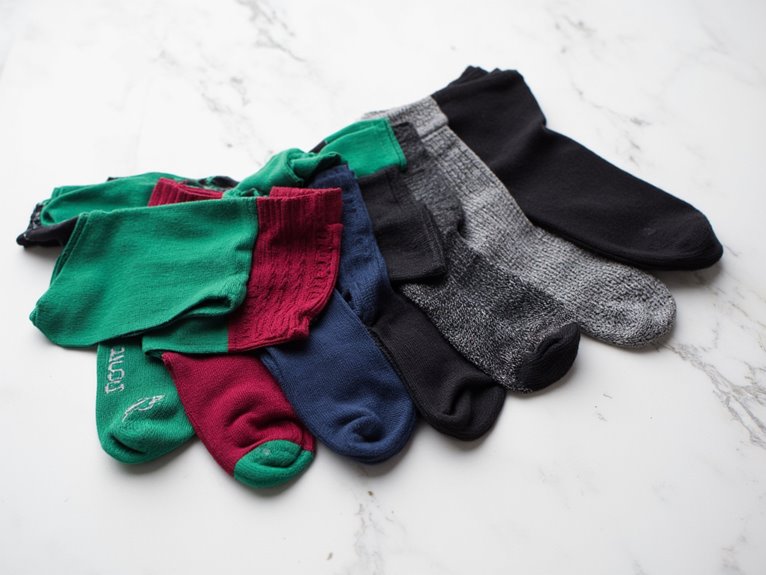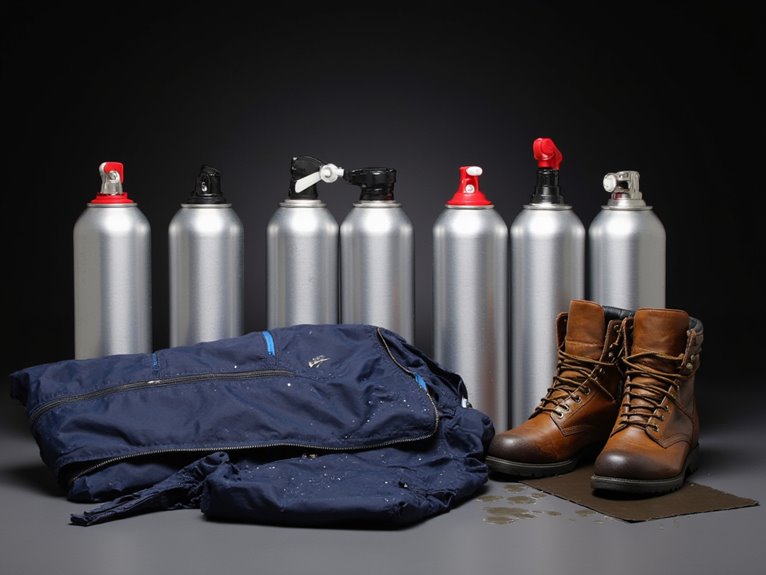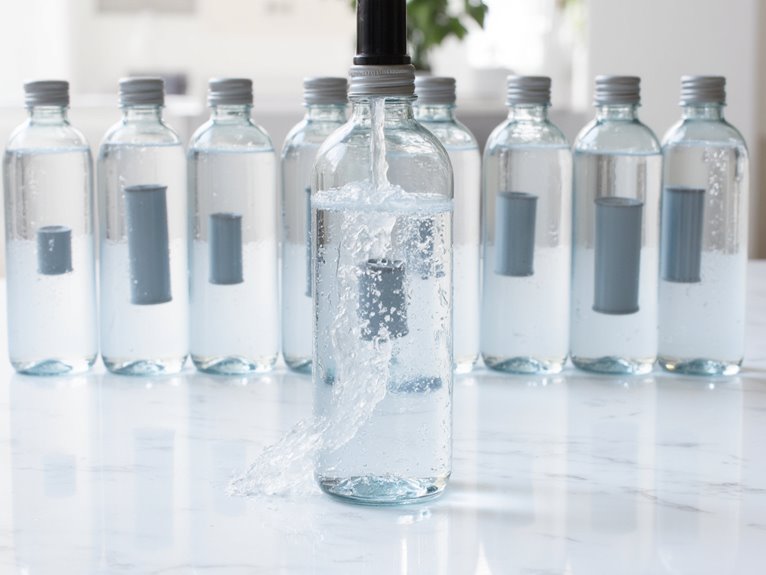Is It Unhealthy to Cook in Aluminum Pans?
Cooking in aluminum pans can pose health risks due to the leaching of toxic aluminum ions into food, particularly when cooking acidic or salty dishes. Research suggests that aluminum can leach into food, especially when cooking methods involve high heat, acidity, and salt. Prolonged consumption of aluminum-contaminated food can lead to toxic buildup in the body, posing significant health risks. To minimize these risks, adopt gentle heat, avoid acidic or salty foods, and season aluminum pans regularly. For a safer cooking experience, investigate alternative cookware options, and discover the facts behind aluminum cookware to make informed decisions about your cooking habits.
We are supported by our audience. When you purchase through links on our site, we may earn an affiliate commission, at no extra cost for you. Learn more. Last update on 20th January 2026 / Images from Amazon Product Advertising API.
What Is Aluminum Cookware Made Of
Aluminum cookware is typically constructed from a type of aluminum alloy, often 6061 or 3003, which is prized for its exceptional thermal conductivity, corrosion resistance, and durability.
These alloys are carefully selected to provide superior performance in cooking applications.
The 6061 alloy, for instance, is known for its high strength-to-weight ratio, making it an ideal choice for cookware that requires both durability and lightness.
The 3003 alloy, on the other hand, offers excellent corrosion resistance and is often used in cookware that requires exposure to acidic or salty foods.
Does Aluminum Leach Into Food
When cooking with aluminum pans, a common concern arises: does the metal leach into food, potentially posing health risks to consumers?
Research suggests that aluminum can leach into food, particularly when cooking acidic or salty dishes. The amount of leaching increases with higher acidity, heat, and cooking time.
For instance, cooking tomatoes or citrus-based dishes in aluminum pans can cause more significant metal transfer. However, it's essential to note that the amount of aluminum that leaches into food is generally considered safe by regulatory agencies.
Nonetheless, to minimize potential risks, it's recommended to use aluminum pans at moderate heat, avoid cooking acidic foods, and avoid storing food in aluminum containers for extended periods.
The Risks of Aluminum Toxicity
As we delve into the risks of aluminum toxicity, it is crucial to examine the impact of aluminum in food on human health.
Prolonged consumption of aluminum-contaminated food can lead to toxic buildup in the body, posing significant health risks.
This highlights the importance of understanding the potential health consequences of cooking with aluminum pans.
Aluminum in Food
Extensive research has consistently shown that ingesting aluminum through food cooked in aluminum pans can have detrimental effects on human health.
When aluminum leaches into food, it can accumulate in the body, leading to toxic buildup. This can cause a range of health problems, including cognitive impairment, bone damage, and anemia.
In addition, aluminum has been linked to neurological disorders, such as Alzheimer's disease, Parkinson's disease, and multiple sclerosis.
The risk of aluminum toxicity is particularly high for individuals with kidney disease, as their bodies are less able to remove excess aluminum.
Moreover, being aware of the risks associated with cooking in aluminum pans and taking necessary precautions to minimize exposure is crucial.
Toxic Buildup Risks
Aluminum toxicity, which can result from cooking in aluminum pans, poses significant health risks due to the accumulation of toxic metals in the body.
When aluminum leaches into food, it can lead to a buildup of toxic compounds in the body, causing harm to organs and tissues.
Prolonged exposure to aluminum toxicity can result in neurological damage, bone disease, and even cancer.
In addition, aluminum toxicity has been linked to Alzheimer's disease, Parkinson's disease, and other neurological disorders.
Moreover, preventive measures must be taken to minimize aluminum exposure, such as using alternative cookware and avoiding acidic or salty foods that can accelerate aluminum leaching.
Cooking Methods That Raise Concerns
Certain cooking methods, such as high-heat frying and boiling, can substantially increase the leaching of aluminum into food.
These methods can cause the aluminum to react with acidic or salty foods, leading to a higher transfer of metal ions into the food.
Additionally, cooking methods that involve scraping or stirring foods with metal utensils can also increase the risk of aluminum leaching.
This is because the utensils can scratch the aluminum surface, creating a pathway for metal ions to migrate into the food.
How to Minimize Aluminum Leaching
To minimize aluminum leaching, adopting cooking practices that reduce the reactivity of the metal with food and cooking liquids is essential.
One key approach is to avoid cooking acidic or salty foods in aluminum pans, as these can react with the metal and increase leaching.
It's also vital to avoid high-heat cooking, as this can accelerate chemical reactions. Instead, opt for gentle heat and shorter cooking times.
Additionally, seasoning your aluminum pans regularly can help create a non-reactive layer, further reducing leaching.
Healthier Alternatives to Aluminum
When seeking healthier alternatives to aluminum cookware, several options stand out for their durability, performance, and non-reactive properties.
Cast iron, stainless steel, and copper cookware offer superior cooking experiences while minimizing the risks associated with aluminum leaching.
In the following sections, we will examine the benefits and essentials of each material, guiding you towards a safer and more enjoyable cooking experience.
Cast Iron Cookware Options
Among the healthier alternatives to aluminum, cast iron cookware stands out for its durability, versatility, and non-toxic properties.
Cast iron pans can be seasoned to create a non-stick surface, and they can withstand extremely high temperatures.
This cookware is also incredibly durable, with some pieces lasting for decades with proper care.
Additionally, cast iron cookware leaches iron into food, which can be beneficial for individuals with iron deficiencies.
When cooking with cast iron, it's essential to avoid acidic foods and acidic seasonings, as they can strip away the seasoning.
With proper maintenance and care, cast iron cookware can become a trusted companion in the kitchen, providing a healthier and more sustainable cooking option.
Stainless Steel Benefits
Stainless steel cookware, revered for its corrosion resistance and durability, offers a healthier alternative to aluminum pans, boasting a non-reactive surface that preserves the flavors and nutrients of food.
This material is ideal for cooking acidic or salty foods, as it won't leach metallic flavors or toxins into the food.
Additionally, stainless steel cookware is easy to clean and maintain, resisting scratches and corrosion.
It's also highly resistant to scratches and corrosion, making it a durable option for daily use.
With its numerous benefits, stainless steel cookware is an excellent choice for those seeking a healthier, low-maintenance cooking solution.
Copper Cooking Essentials
Copper cookware, prized for its exceptional heat conductivity and durability, offers another healthier alternative to aluminum pans, allowing home cooks to prepare a wide range of dishes with precision and control.
Copper's superior heat distribution guarantees even cooking, reducing the risk of hotspots and undercooked areas.
Additionally, copper cookware is resistant to corrosion, making it a durable option for everyday cooking.
When properly maintained, copper cookware can last for decades.
While copper cookware can be more expensive than aluminum, its benefits make it a worthwhile investment for those seeking a healthier, high-performance cooking option.
With proper care, copper cookware can become a trusted companion in the kitchen, providing years of reliable service.
Separating Fact From Myth
Many misconceptions surround the use of aluminum pans in cooking, making it essential to distinguish between the facts and the myths.
One common myth is that cooking in aluminum pans causes Alzheimer's disease. However, numerous scientific studies have debunked this claim, finding no conclusive evidence to support it.
Another myth is that aluminum leaches into food, posing a health risk. While it is true that aluminum can leach into acidic or salty foods, the amount is typically negligible and poses no significant health risk.




